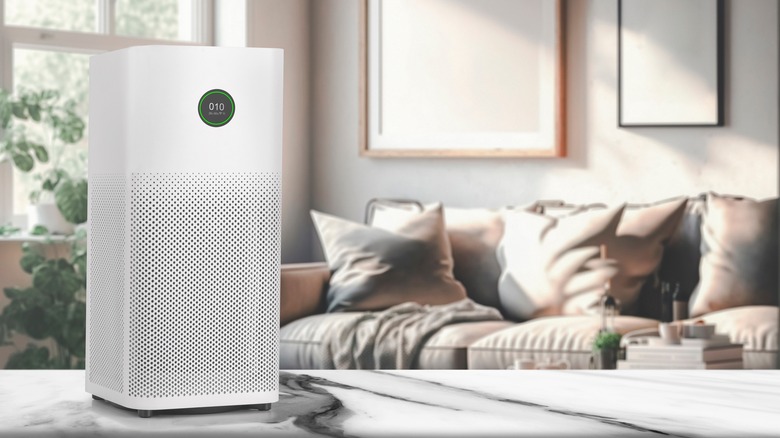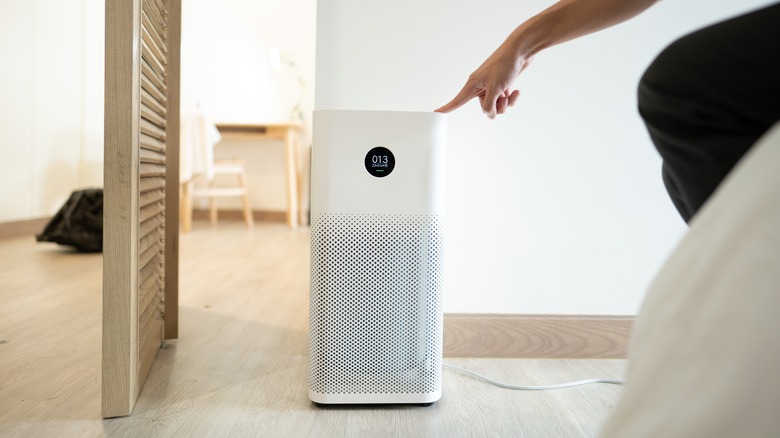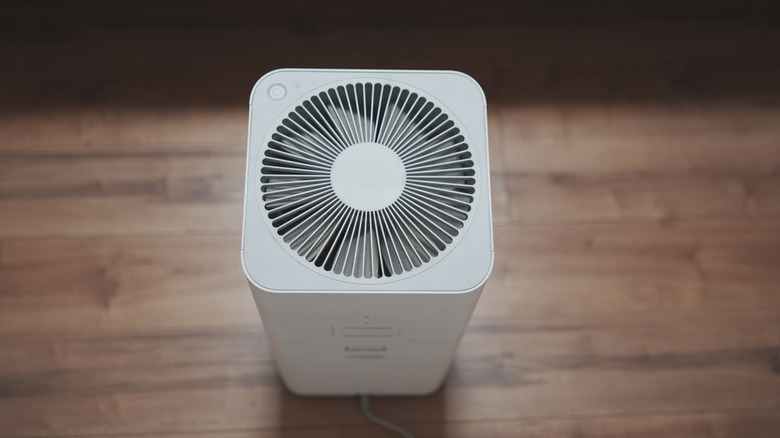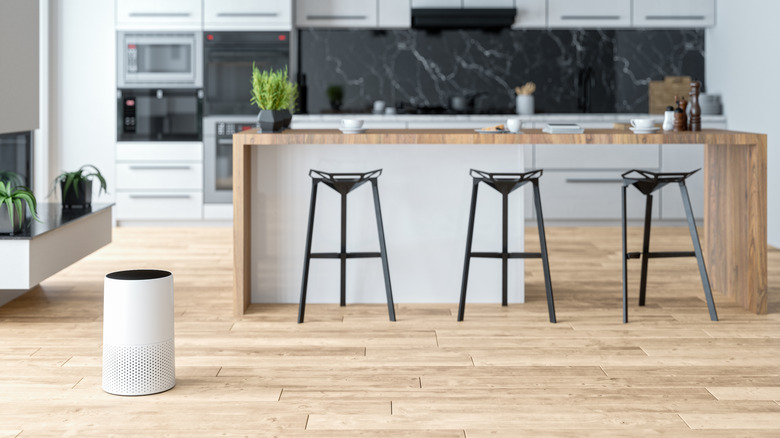Do Air Purifiers Reduce Bad Odors? Here's What You Should Know
In a post-pandemic world, concerns about air purity are more prevalent than ever. It's not just viruses that are propelling growing awareness of the importance of clean air, either. One of the worst ways humans have impacted nature is through industrial emissions and pollution, all of which continue to contribute to deteriorating air quality. Industrial emissions and pollution continue to contribute to deteriorating air quality. Air purifiers are an increasingly popular way to improve air quality at home, but do they also reduce smells?
Air purifier sales are expected to soar over the next decade. According to statistics from Grand View Research, the air purifier market is set to increase at a compound annual growth rate of 7%, which essentially means this technology is fast becoming a standard home appliance. Aside from airborne viruses, air purifiers can handle allergens like pollen, mold spores, dander, and even smoke, depending on what type of filter the purifier uses.
Considering an air purifier is essentially a fan that moves air through a filter, surely whatever particles cause odors should get swept up by that mechanism and filtered out? Well, it's complicated.
Do air purifiers help with smell? It depends on several factors
When it comes to air purifiers and their ability to reduce smell, it really comes down to the type of odor, the filter in your purifier, the area in which the device is being used, and how much air the purifier is capable of cleaning. Put simply, not all air purifiers are created equal, and that applies to whether a specific model will help reduce smells in your home.
High Efficiency Particulate Air (HEPA) filters — an acronym everyone is, lamentably, very familiar with after the global pandemic — are the gold standard for air filters, but while they're excellent at reducing airborne pollutants, they were not designed to deal with odors. A HEPA filter must be able to remove 99.97% of airborne particles — which may include dust, pollen, mold, and bacteria — with a minimum size of 0.3 microns. However, air purifiers with HEPA filters won't eliminate odor-causing particles, such as tobacco smoke, as these are too small to be caught.
In order to catch some of these smaller odor-causing particles, a type of gas-phase air filter is needed, typically of the activated carbon variety. These filters, which can be used in tandem with their HEPA alternatives, are effective at trapping tiny odor molecules and gasses. In particular, these filters are great for catching smoke particles and reducing or eliminating the odor of cigarettes, fire, or burnt food. But even activated carbon filters won't trap every odor-causing particle.
No air purifier will completely remove smells from your home
Even with activated carbon filters, there are more caveats to consider. The type of material used to create these filters matters, with wood, coconut, and coal-activated carbon all offering different performance when it comes to reducing smells. That aside, an activated carbon filter in an air purifier will only ensure the device can reduce odors to a certain degree, and even an air purifier with both HEPA and activated carbon filters won't remove all odors from the air.
Other considerations include an air purifier's CADR (Clean Air Delivery Rate), which refers to the cubic feet per minute (CFM) of air that has been cleaned of particles. A higher CADR indicates that an air purifier can filter more particles and is suitable for a larger area. If a purifier also comes with the type of filter that traps some odor-causing particles, the CADR and the size of the area in which the purifier is being will have an impact on how effective the device is at eliminating the odors it's capable of trapping.
Air purifiers are part of a larger solution for reducing smells
Unfortunately, there's no simple answer to whether air purifiers can reduce bad odors. Beyond the various types of purifier and their filters, there are differences in the types of odors these devices target. One air purifier might excel at filtering particles but struggle to remove chemical odors, while others might work well at eliminating only certain odors, such as musty smells.
Air purifiers that do have effective odor-eliminating properties are typically designed to work in one room. This is where the CADR comes into play, which should be taken into account when deciding what type of air purifier you need for your room size. The main takeaway here, given the disparity between various air purifiers and their effectiveness at eliminating odors, is that such devices should be used as part of a bigger solution. If unwelcome odors are plaguing your home and opening the windows for some fresh air doesn't help, it might be best to determine and address the source of the odor.



